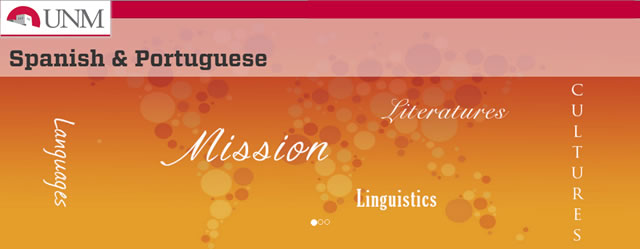
Spanish and Portuguese ETDs
Publication Date
9-12-2014
Abstract
Women writers on both sides of the US/Mexican border have rewritten Chicana-Fronteriza narratives by uncovering the individual memory of women and LGBTII communities along the US-Mexico Border. La tarima (2001) by Rosina Conde and Gulf Dreams (1996) by Emma Pérez reveal a consciousness of the social decay and domestic violence of urban border life. These authors deconstruct the identity of women and minorities by disassociating knowledge acquired through patriarchal structures. Moreover, Conde and Pérez break with established written patterns by mixing genres, and subverting traditional forms of language and notions of space. The dramatic and rapid changes on both sides of border and in language are reflected in these narratives. Therefore women and LGBTII communities have become a complex and important part of the labor force and political underpinning of these two nations. The discourses in Chicana and Fronteriza literature allow us to re-think the relationships between bodies, language and space on the US/Mexico border. These texts weave together narratives of forgotten memories of other times, spaces and bodies. This study analyzes the female and queer characters in the texts by Conde and Pérez. It uses the concept of despojo,' the action of peeling off as a metaphor, to understand the political, social and cultural content of these texts. They interweave together different cultural artifacts to illustrate how Chicana-border writers documented their stories or narratives as a way to represent what they have sorrowfully experienced as single women and as part of their communities through the years. This writing reveals a constant preoccupation for Conde and Pérez to create spaces for the exchange of ideas and discourses to raise consciousness in society. Both authors represent the challenges of events occurring in the borderlands beginning in the 1990's (such as the violence against women, the corruption of public officials and the drug wars), which demonstrate how social reality impacts its inhabitants. These narratives expose various degrees of marginalization and fragmentation of feminine and queer roles. The analysis of this exclusion contributes to the understanding of patriarchal societies and the subsequent subjugation of women and the LGBTII community leading to the alienation of men as well as women. Conde and Pérez construct a contemporary discourse for the 'real' representation(s) of their body(ies), language(s), and sitio(s) (spaces) that portrays the disappearance of national identities, and emphasizes the disconcerting presence of a blurred society. By analyzing these narratives, we understand that they are more than a critique of this social reality but also a call to awareness of the presence of women and queer individuals in our society by these authors. These narratives represent the memory of our past generations and the awakening to consciousness of new voices.
Degree Name
Spanish & Portuguese (PhD)
Level of Degree
Doctoral
Department Name
Spanish and Portuguese
First Committee Member (Chair)
Reyes, Bárbara
Second Committee Member
Sykes, Julie
Third Committee Member
Tabuenca-C, María Socorro
Language
Spanish
Keywords
Fronteriza/Chicana Literature, Body, Sexuality, Space, Nation, Queer Identity, Language
Document Type
Dissertation
Recommended Citation
Meléndrez, Cynthia. "Una Perspectiva del Despojo: Cuerpo, lengua y Espacio Desde el Discurso Lésbico/Queer en la Literatura Fronteriza/Chicana." (2014). https://digitalrepository.unm.edu/span_etds/26
Included in
European Languages and Societies Commons, Latin American Languages and Societies Commons
